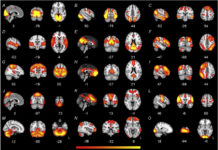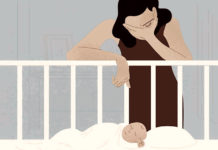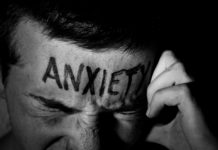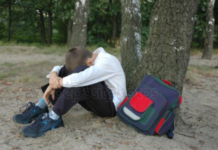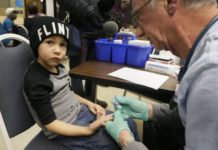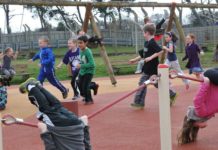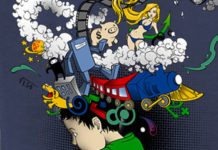No Brain Connectivity Differences Between Autism, ADHD, and “Typical Development”
Neuroscience researchers find no differences in brain connectivity between children with diagnoses of autism, ADHD, and those with no diagnoses.
“Breakthrough” Treatment for Postpartum Depression: Game Changer or Misguided Magic Bullet?
Ultimately, the FDA Advisory Committee recommended approval of brexanolone by a 17-1 member vote. I was the only NO vote. I voted NO because as the sole Consumer Representative on the committee I didn’t believe the company had demonstrated that the potential benefits outweighed the potential for harm.
When Does it Help to Have Background Information in Child-Centered Play Therapy?
Knowing the client’s history can help foster genuine empathic responding, a key component to child-centered play therapy.
Adderall Use Associated with Increased Risk of Psychosis
Twice as many teenagers with ADHD experienced severe psychosis when taking Adderall, as compared to Ritalin, according to a new study.
Where Can Families Turn for Help?
Watching my son be subjected to continuous harm by the drugs, how can I pretend that it's okay to maintain this abusive system of care? Who will push for accountability? As a mother, I want to share a meaningful connection with my son. I want to witness him happy, healthy and living the life he chooses.
Green Space in Childhood May Protect Against Adult Mental Health Issues
A new study suggests proximity to green space as a child is linked to lower rates of mental health issues in adulthood.
Increasing Prevalence of Mood Disorders Among Teens and Young Adults
Depression, serious psychological distress, and suicide attempts have risen substantially since the early 2000s among young adults – what’s changed?
Student Counseling Services: Do They Really Help the ‘Mentally Ill’?
I used to think that the counseling center would help me to resolve my inner conflicts. That visiting the center would do some good for me. I have since realized that most mainstream “mental health” is more damaging than helpful. These days if student counselors see any problem with a student visiting the center, they send him or her to see a psychiatrist.
Stigmatizing Effects of the Psychosis-Risk Label
Study examines the effects on participants of being told they are at risk of developing psychosis.
Kick Big Pharma Out of the Classroom
School-based strategies such as the “talk to your doctor” campaign about any childhood problem have been extremely effective in helping the pharmaceutical industry to marginalize traditional child-rearing practices and replace them with advice from mental health “experts” and the use of dangerous drugs. These campaigns are reminiscent of now-illegal vintage tobacco ads in which doctors endorsed cigarette smoking.
Is Anxiety to Blame for Missed School?
A new systematic review illustrates features of the relationship between anxiety and school attendance patterns.
How “Mental Health Awareness” Exploits Schoolchildren
Imagine being a parent at a meeting with educators to discuss Johnny's academics or behavior. Suddenly, your child’s teacher is telling you that he needs to see a doctor for an assessment of a suspected “mental disorder,” which usually leads to a prescription for medication. Warned of “the risks against failing to intervene,” you will likely acquiesce.
School-Based Program for Anxiety and Depression Shows Promise
Researchers evaluate the impact of a school-based prevention program on anxious and depressive symptoms.
“I’m Not Going, You Can’t Make Me!”: A Community Approach to School Refusal
Consider an imaginary child called Jack who has been avoiding school as much as possible for a month. Standard practice would be cognitive-behavioral therapy or psychoactive drugs to help Jack deal with his anxiety. But what if Jack's social network instead mobilized to help him regain the role of student?
Racial Discrimination a Clear Contributor to Youth Mental Health Disparities
Greater perceptions of discrimination during adolescence are linked to more depressive and internalizing symptoms.
More Evidence for the Lasting Psychological Impact of Lead Exposure in Childhood
New research points to numerous harmful effects of high-level lead exposure in childhood on adult mental health and personality characteristics.
Technology Not a Strong Factor in Adolescent Well-being, New Study Claims
A new study suggests digital media use among adolescents has a smaller negative effect on well-being than bullying or smoking marijuana.
“ADHD: A Return to Psychology” Video Series
Most people believe that children diagnosed with ADHD misbehave because they possess an inferior inhibitory system that renders them less able to suppress unacceptable actions. However, this belief has numerous shortcomings. This series of videos challenges these assumptions and offers alternative explanations for why a child may exhibit ADHD behaviors.
Flexible Treatment Planning Improves Depression Outcomes in Youth
Researchers explore the effects of augmented treatment at various points in interpersonal psychotherapy for adolescents diagnosed with depression, highlighting previously unidentified critical decision points (i.e., relatively early in the treatment sequence).
Prenatal Valproate Exposure Linked with ADHD Diagnosis in Children
Children who were exposed to anti-seizure drug valproate in utero were 48% more likely to develop ADHD, according to a new study.
Researchers Highlight Pitfalls of Cognitive Assessment in Schools
Historical, current, and potential future complexities of cognitive assessment; a longstanding, controversial fixture in schools throughout the United States.
Increasing Physical Activity in Schools May Improve Mental Health
A new article suggests integrating physical activity throughout the day may help to address the mental health of students.
Antipsychotics Associated with High Risk of Death in Children
A new study has found that children and adolescents taking a high dose of antipsychotics are almost twice as likely to die of any cause than children on other types of medications.
Growing Evidence for the Link Between ADHD Diagnosis and Age at School Admission
Researchers detect a striking relationship between the month of school enrollment relative to peers and patterns of ADHD diagnoses in a large sample of elementary school students throughout the US.
Belongingness Can Protect Against Impact of Trauma, Study Suggests
A new study explores feelings of belongingness as a protective factor for childhood trauma and adult mental health outcomes.

